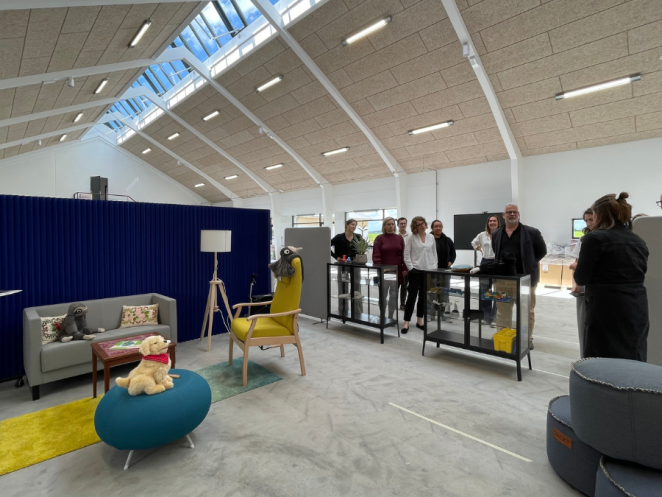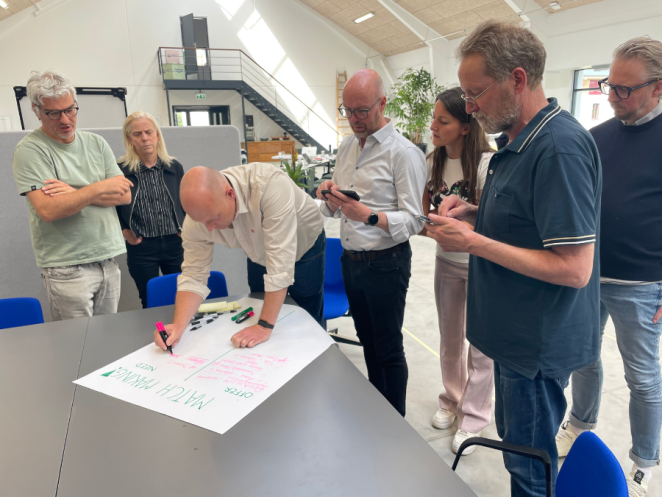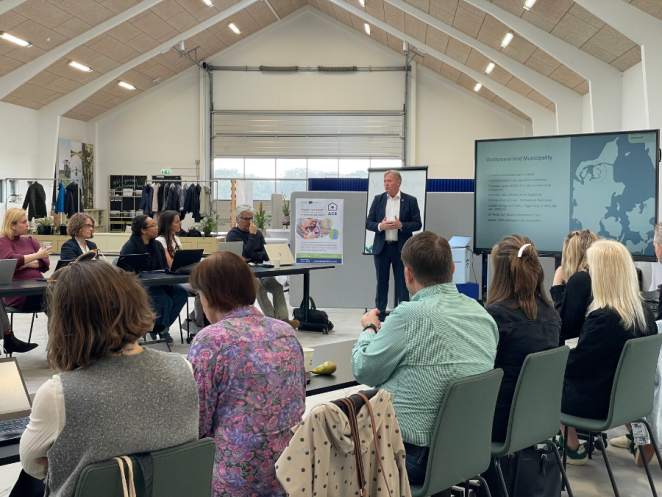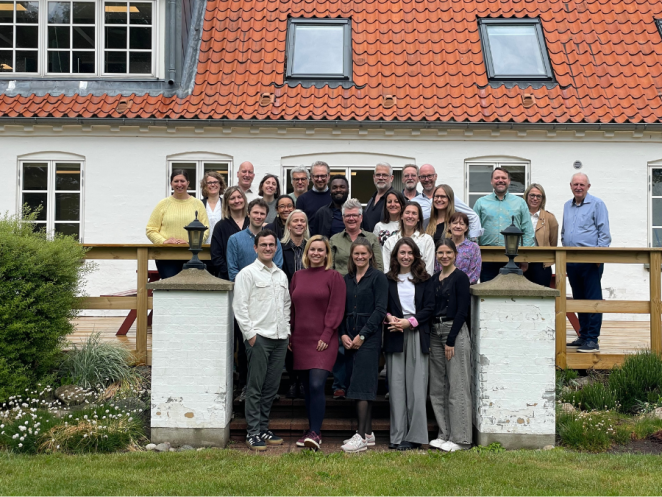On May 26-27 2025, the ACE consortium convened in Vesthimmerland, Denmark, for a pivotal two-day meeting to review progress and refine final-year plans to accelerate innovation in the homecare sector. Against the backdrop of the region’s proactive efforts to address future workforce needs, the gathering offered a timely opportunity to share insights from active pilot projects, strengthen cross-border collaboration, and refine the strategic vision for future care.

Local leadership driving change
The event began at Gundestrupgaard, a former agricultural site now repurposed as an innovation hub. Vesthimmerland’s mayor welcomed participants by outlining the region’s proactive approach to tackling one of its most urgent challenges: recruiting enough care professionals to meet increasing demand. With at least 180 additional workers needed by 2030, the municipality is investing in both workforce strategies and smart technologies to support independent living and improve care delivery.

Pilots in progress: testing, learning, scaling
A core focus of the meeting was the progress of ACE’s pilot activities, which are testing and scaling innovative homecare solutions across the region. So far, 12 pilots have been approved, with more in development. These range from digital tools for care coordination to AI-based planning systems, remote sensors, and robotic assistance.
What sets ACE apart is its commitment to not only testing technologies but also exploring how to integrate them meaningfully into routine care, ensuring that innovations are not left unused or forgotten. The consensus among project partners was clear: technology should genuinely ease the workload of care professionals, not create additional burdens.
Through 11 interviews with pilot coordinators and an analysis of project meetings, several recurring themes have emerged:
- Trust and networks matter most: Personal, trust-based relationships are often the strongest enablers of successful pilot implementation.
- Simplicity is essential: Technologies need to be intuitive and low-maintenance to be viable in everyday care settings.
- Support structures are key: Coordination, ongoing guidance, and follow-up ensure that pilots stay on track.
- Barriers remain: Time constraints, limited resources, regulatory compliance, and differences in national systems are all ongoing challenges.
- A shift in procurement mindset: With too many platforms creating friction, some partners are prioritising the data generated by solutions over the tools themselves.
Technologies discussed included smart remote sensors, communication tools, AI-based planning, robotic and teleoperative assistance, and exoskeletons to support with heavy lifting. While these tools show promise, full-scale implementation remains hampered by high costs, complex integrations, and insufficient alignment with frontline needs.

Adapting systems to enable meaningful change
One key focus of the second day was understanding what it takes to adapt systems for long-term change. Through workshops and surveys, ACE is collecting real-world insights from care professionals to identify the most critical adaptations needed when introducing new technologies or methods to homecare.
This feedback loop is a vital part of ACE’s approach: collecting insights from those on the frontlines and using them to move from isolated experimentation to practical, system-wide implementation. By focusing on what works in real settings, and what gets in the way, the project is helping shape solutions that are not only innovative but also feasible and sustainable.

From presentation to practice: living labs in action
Participants were introduced to Vesthimmerland’s living lab approach - a model where care staff, citizens, SMEs, and decision-makers collaborate to test new solutions in real-world settings. This approach directly addresses a common challenge in the sector: too often, municipalities procure technologies that are later underused or abandoned. By involving end-users early and consistently, Vesthimmerland increases the likelihood that innovations truly meet local needs.
One of the biggest takeaways from the event was the level of innovation coming out of Vesthimmerland. Despite being a relatively small municipality, it is making impressive strides in leveraging technology to meet future care needs. From its living lab methodology to its commitment to co-developing solutions with staff and residents, Vesthimmerland is setting a powerful example of what’s possible with strong leadership and a clear vision.

A shared vision for 2030
The second day also focused on shaping ACE’s final strategic outputs, with discussions centred around what homecare should look like by 2030. Common themes emerged: person-centred care, technological enablement, and sustainable service models that support independence and dignity for older adults.
These strategy discussions reflected the project’s broader goal: moving beyond isolated pilots to system-level transformation, grounded in real-world insights from those delivering and receiving care.
Join the ACE Community Platform today – it’s free!
If you have a homecare solution you'd like to pilot or scale, now is the time to connect with ACE. The ACE Community platform is your gateway to a dynamic ecosystem of care providers, municipalities, companies, and other stakeholders committed to transforming care across the North Sea Region.
Our platform is strategically designed to support collaboration, pilot matchmaking, and the acceleration of high-impact innovations that improve safety, independence, and quality of life for care recipients.
